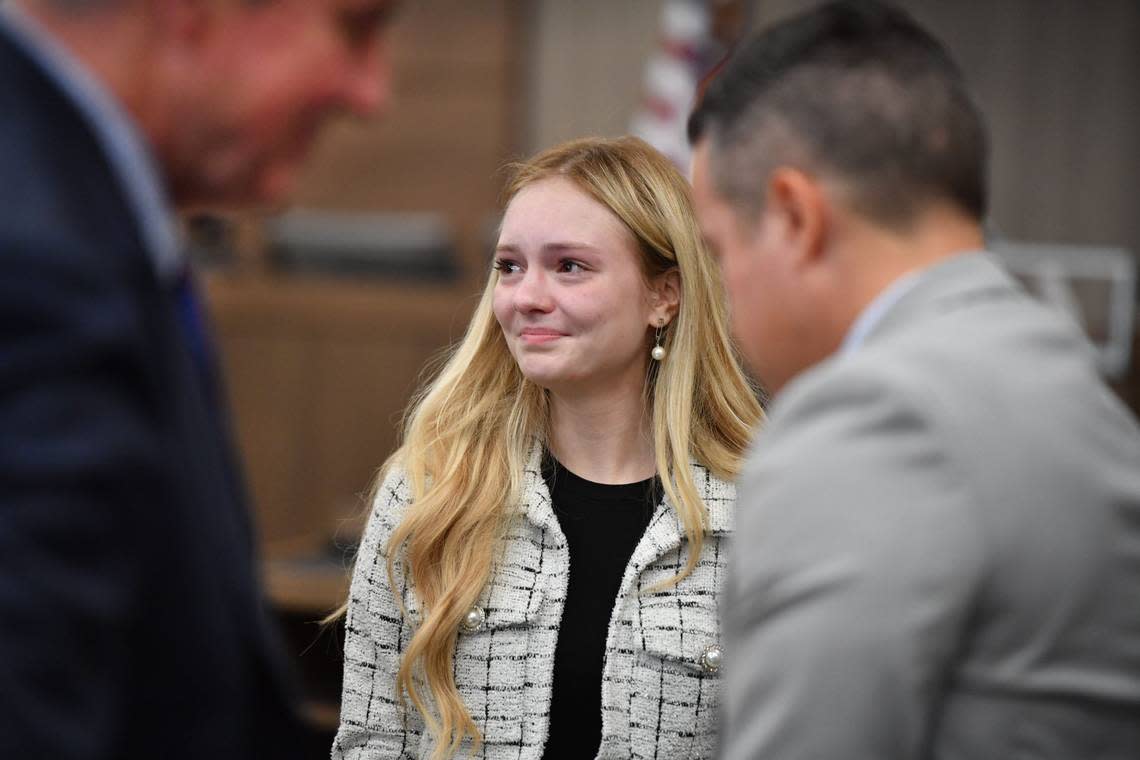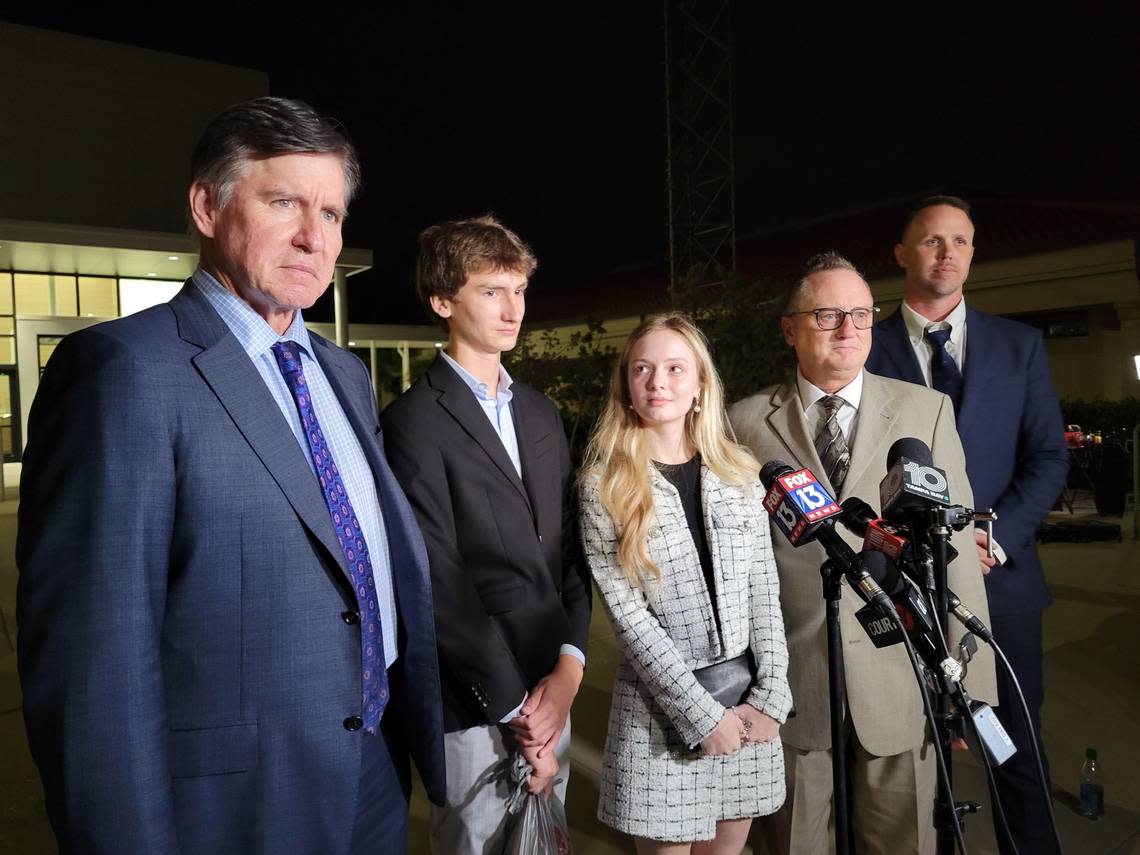‘Take Care of Maya’: $261 million verdict in case from Netflix doc exposes CPS issue | Opinion
Disputes over medical treatment are a common way for Child Protective Services to get involved in families. Sometimes, investigators interfere for the better. Often, though, their involvement is an example of state-sanctioned overreach that needs reform.
A Florida jury just handed down a massive medical malpractice verdict showcasing the vital need for such reform. Maya Kowalski, 17, and her family were awarded a stunning $261 million in their suit against Johns Hopkins All Children’s Hospital in St. Petersburg. (The largest one in 2022 was $111 million.)
Last week, the jury found that the hospital wrongfully separated Kowalski from her mother and committed a bevy of offenses, including wrongfully placing the young girl under video surveillance for 48 consecutive hours and making her strip down to shorts and a training bra for a photograph.
If the case sounds familiar, that’s because the details were featured in the hugely popular but horrifying 2023 Netflix documentary, “Take Care of Maya.” It features the Kowalski family torn apart by a knee-jerk diagnosis of a child welfare employee at Johns Hopkins All Children’s Health Hospital.
At around age 10, Maya had been diagnosed with chronic regional pain syndrome, a rare and painful disease. She received relief with an unusual treatment, high doses of Ketamine. When she relapsed in severe pain, Maya’s family took her to Johns Hopkins All Children’s Health Hospital and her mother, Beata — an aggressive R.N.— pressured providers to give her Ketamine.

After observing this, the liaison for the hospital in charge of child welfare services, Dr. Sally Smith, accused Beata of having Munchausen by proxy, a disorder where a parent makes up a child’s medical issues for attention. That’s when the family changed forever.
Maya was told she was unable to leave Johns Hopkins or see her family for months. Beata couldn’t live with the accusation of abuse and the separation from her daughter and died by suicide. Maya was immediately reunited with her father and brother and the family sued. The case against Johns Hopkins was strong, and the hospital tried to avoid going to trial for years. The documentary on Netflix ended with a judge forgoing scheduling the trial and the family in tears.
Finally, over the last several weeks, a Florida jury has heard the Kowalskis’ robust but painful case against Johns Hopkins and exposed the CPS system’s overreach. During the trial, Maya also accused the hospital of sexual abuse and she’s since lodged a criminal complaint against the hospital as well.
“No amount of money would ever replace my mom, so honestly, we were just happy to get a yes, we were happy to have our prayers answered,” Maya Kowalski told NewsNation’s Chris Cuomo.

Child Protective Services was initially designed to protect children from abuse. But while intended for good, often each state’s program tends toward extremes: overreach is a massive problem in the U.S. and yet, on occasion, so is under performance. CPS gets involved in cases where it shouldn’t and doesn’t react in others where it should so the child remains at risk or worse, dies.
Stories abound of parents brutally abusing, then killing a child even though loved ones had called CPS repeatedly. In Houston last year, a caseworker examined Troy Khoeler but didn’t think the boy’s explanations of abuse matched up to his injuries. The 7-year-old was found last July in a washing machine. The medical examiner found signs of abuse. His adoptive parents were charged in connection to his murder.
Just Tuesday, Dallas-Fort Worth news reports indicate a toddler was attacked by a pit bull that resided in the family home where the child was living temporarily due to CPS’ involvement in placing the child there after her parents admitted to a drug-related relapse. Even in the Netflix documentary, after a reporter originally wrote about Maya’s case, dozens of parents who had similar trouble with that exact case worker came forward.
Texas lawmakers are aware that CPS needs reform. Texas Monthly observed in July that “Several laws that passed this session make Texas the unlikely front-runner in limiting overreach by Child Protective Services by tightening statutes related to removals, informing parents of their rights, and banning anonymous reports of abuse to the state hotline.”
These bills were the result of conservative legislators and progressive activists working together. Protecting children yet also keeping families from unnecessary government overreach should be a bipartisan issue. Abuse is a serious charge; CPS involvement should not be taken lightly. But when it is involved, it must do better at pinpointing issues and deciding whether or not to remove a child from care.
Lawmakers from other states need to look at Maya’s lawsuit and see if what happened to her could happen in their state. It’s a tough pendulum to balance — and there is no exact formula for change, but if cases like this are common, then reform is necessary.
Do you have an opinion on this topic? Tell us!
We love to hear from Texans with opinions on the news — and to publish those views in the Opinion section.
• Letters should be no more than 150 words.
• Writers should submit letters only once every 30 days.
• Include your name, address (including city of residence), phone number and email address, so we can contact you if we have questions.
You can submit a letter to the editor two ways:
• Email letters@star-telegram.com (preferred).
• Fill out this online form.
Please note: Letters will be edited for style and clarity. Publication is not guaranteed. The best letters are focused on one topic.
